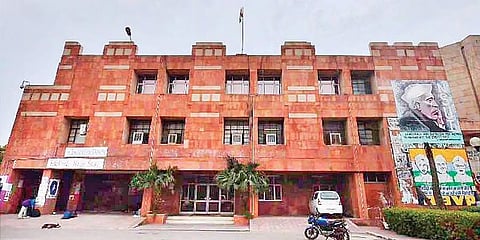

The Jawaharlal Nehru University Teachers’ Association (JNUTA) on Wednesday accused the university’s Vice Chancellor of repeatedly bypassing transparency and due process in decision-making, particularly in the appointment of faculty members, as per a report by The New Indian Express.
In a strongly worded statement, JNUTA said the 324th “emergency” meeting of the JNU Executive Council (EC), held earlier in the day, once again highlighted what it called the VC’s “fear of open discussion and deliberation.” The association alleged that the VC has convened the highest number of “emergency meetings” in JNU’s history, often with only a day’s notice, leaving members with little time to examine the agenda.
The teachers’ body expressed concern over what it termed the “rampant misuse” of such provisions, adding that Wednesday’s meeting rushed through key decisions, including a faculty appointment, in less than ten minutes. According to JNUTA, representations by two candidates had raised doubts about the eligibility of a shortlisted candidate, but the matter was not fully discussed.
JNUTA alleged that crucial documents were withheld from elected representatives and that the VC ignored repeated requests for transparency. The body further claimed that questions of “irregularity and favouritism” have arisen because of the VC’s actions, and accused her of attempting to intimidate elected teacher representatives by equating their objections with “contempt of court.”The association also flagged long-standing grievances related to promotions, accusing the administration and the Director of the Internal Quality Assurance Cell (IQAC) of interpreting UGC rules on past service in arbitrary ways.JNUTA said several teachers have faced delays in their promotions for years, with one faculty member retiring in June without ever receiving his promotion. In another case, the university allegedly initiated recovery proceedings against a teacher on the grounds that their promotion was based on “illegitimate” past service counting, despite an earlier audit objection already being resolved.Calling the developments a “serious breach of governance norms,” JNUTA said these practices not only undermine the credibility of the appointment and promotion process but also reveal a pattern of harassment that erodes faculty morale and institutional accountability.
